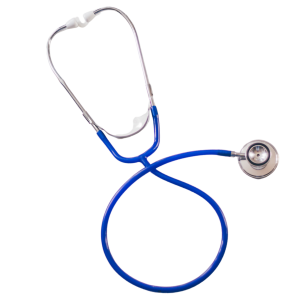FREQUENTLY ASKED QUESTIONS
Empowering Careers through Tailored Services: JJV Education Services - Your Gateway to Success.

Frequently Asked Questions
Find quick solutions to popular inquiries about our services and study abroad opportunities. Browse our FAQs for more information
JJV RELATED FAQ
At JJV Education Services, we excel in facilitating MBBS pursuits in Russia. With tailored guidance, diverse university options, and holistic support, we ensure a seamless journey for aspiring medical professionals. Our proven track record underscores our commitment to your success. Join us for an enriching and transformative educational experience.
Post admission at Volgograd University, JJV Education Services provides visa support, accommodation assistance, academic guidance, and cultural integration support for a seamless experience.
Studying abroad offers unparalleled opportunities for personal growth, cultural immersion, academic enrichment, and career advancement. It broadens your perspective, enhances language skills, fosters independence, and builds a global network, preparing you for success in an increasingly interconnected world.
Volgograd is best known for its historical significance, particularly as the site of the Battle of Stalingrad during World War II. The city is also renowned for its architectural landmarks, including the Motherland Calls statue and the Volgograd Panorama Museum.
Volgograd, formerly Stalingrad, witnessed the pivotal Battle of Stalingrad during World War II, a turning point where the Soviet Union halted Nazi Germany’s advance. It resulted in immense casualties but ultimately led to the Soviet victory and the eventual defeat of the Nazis.
Volgograd is located in southwestern Russia, along the western bank of the Volga River. It is situated in the region known as the Southern Federal District, near the border with Kazakhstan.
Volgograd is a significant city in Russia, covering an area of approximately 859 square kilometers (331 square miles). As of my last update, its population is around 1 million people, making it one of the largest cities in the country
Volgograd is generally considered to be less expensive compared to many other cities in Russia. The cost of living, including accommodation, food, transportation, and entertainment, tends to be lower in Volgograd compared to major cities like Moscow or St. Petersburg. However, expenses can still vary depending on individual lifestyle choices and preferences
Russian culture is renowned for its rich history, literature, music, art, and traditions. From classical literature to iconic ballet, traditional folk music, vibrant festivals, and hearty cuisine, it reflects a diverse blend of influences from Slavic, European, and Asian cultures.
To pursue medicine at Volgograd State Medical University, you typically need to meet requirements such as high school transcripts, a secondary school leaving certificate, proof of language proficiency (usually in Russian), and sometimes entrance exams or interviews. Specific requirements may vary, so it’s best to consult with the university or an educational consultant for precise details.
To pursue MBBS in Russia, eligibility requires NEET clearance. Applicants must have cleared NEET; however, the specific score is not a determining factor.
Volgograd, a major city in Russia, is home to several universities and educational institutions. As of my last update, there are approximately six universities in Volgograd, including Volgograd State University, Volgograd State Technical University, Volgograd State Medical University, and others.
The specific marks required for MBBS admission in Russia can vary depending on the university and its admission policies. Generally, universities may consider factors such as high school grades, entrance exam scores (if applicable), and language proficiency. It’s advisable to research the admission requirements of the specific university you’re interested in applying to for the most accurate information.
Studying MBBS in Russia comes with its challenges, as does pursuing medicine anywhere. The curriculum is rigorous, demanding commitment, diligence, and a strong academic foundation. Adapting to a new culture and potentially learning a new language can also present difficulties. However, with dedication, proper support, and effective study habits, many students thrive and succeed in their medical education in Russia.
Yes, after completing your MBBS in Russia, you may have the option to stay in the country for further studies, employment, or other purposes. However, the specifics of staying in Russia after graduation depend on various factors such as visa regulations, employment opportunities, and residency requirements. It’s advisable to research and consult with immigration authorities or legal experts for personalized guidance based on your circumstances and aspirations.
The entrance exam for Volgograd State Medical University typically includes subjects like biology, chemistry, and sometimes physics. The exact format and content may vary, so it’s advisable to check with the university or their official website for the most current information.
In Russia, MBBS is typically referred to as “General Medicine” or “Medicine.” The equivalent degree awarded upon completion of medical studies in Russia is “Doctor of Medicine” (MD) or “Physician
Studying at Volgograd State Medical University offers world-class medical education, modern facilities, experienced faculty, diverse clinical exposure, and a rich cultural experience in a vibrant city.
RUSSIA MBBS FAQ
Securing a job in Russia after completing MBBS depends on various factors such as your language proficiency, specialization, qualifications, and work experience. Russia offers opportunities for medical professionals in hospitals, clinics, research institutes, and other healthcare settings. While finding a job may not be guaranteed or effortless, skilled medical professionals are often in demand. Networking, obtaining necessary licenses, and understanding local regulations can facilitate the job search process. Additionally, some students may choose to pursue further studies or specialization to enhance their career prospects.
Studying medicine in Russia offers high-quality education at affordable costs, diverse clinical experiences, and globally recognized degrees, setting a strong foundation for your medical career.
The salary of an MBBS doctor in Russia can vary depending on factors such as experience, specialization, location, and the type of healthcare facility they work in. On average, entry-level salaries for doctors in Russia may range from ₹50,000 to ₹1,00,000 per month in Indian rupees. However, this figure can be higher for more experienced or specialized doctors, particularly those working in urban areas or private hospitals. It’s essential to note that these figures are approximate and can vary significantly.
Yes, MBBS graduates in Russia can pursue government jobs in healthcare, including roles in state-run hospitals, public health agencies, and research institutes.
Volgograd, like any city, has its safety considerations, but overall, it’s considered relatively safe for residents and visitors. As with traveling anywhere, it’s wise to exercise common sense, stay aware of your surroundings, and follow local safety guidelines.
Russia has a diverse climate due to its vast size and varied geography. It features everything from Arctic conditions in the north to temperate climates in the European regions and continental climates in the central areas. Siberia experiences harsh winters and hot summers, while coastal areas have milder conditions.
As of my last update, specific global rankings for Volgograd State Medical University may vary depending on the ranking organization and criteria used. It’s advisable to consult reputable ranking sources such as QS World University Rankings, Times Higher Education, or Shanghai Ranking for the most up-to-date information on the university’s global ranking in the field of medicine.
